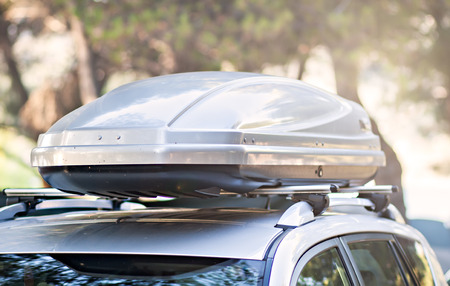Securing Loads Can Prevent Accidents
February 16, 2018 | Category: Automobile Accidents | ShareUnsecured road debris caused nearly 200,000 accidents, led to 39,000 injuries, and more than 500 deaths over a four-year period, according to a study conducted by the AAA (American Automobile Association). The study further said that road debris can have worse consequences than slow commuter traffic.
 Roof-racks are popular for carrying large or awkward items, but the items need to stay within the maximum permitted roof load and be secure. If the vehicle is not equipped to handle these types of loads, accidents may happen.
Roof-racks are popular for carrying large or awkward items, but the items need to stay within the maximum permitted roof load and be secure. If the vehicle is not equipped to handle these types of loads, accidents may happen.
One such accident occurred in June 2017, when the owner of a dangerously overloaded Honda Odyssey minivan was stopped by New Hampshire State Police while driving on I-93. According to the police, “The owner seemed to have loaded every worldly possession they had onto the car's roof, including a number of cabinets, a bike, cleaning supplies, a shovel and a ladder.” After police pulled the minivan over, they arranged for it to be towed from the roadway because it was a danger to other drivers. The driver of the overloaded van was ticketed for negligent driving.
What is the maximum permitted load?
According to Outsideonline.com, the roof of almost any make or model passenger car, SUV, or crossover driven was only rated to hold 165 pounds. Weight on a roof makes a vehicle handle poorly and more likely to roll over, and reduces its fuel economy. A bare roof cannot carry a load because it cannot distribute the weight out to the pillars and doorframes. If you place a load on a bare roof, you will damage it. Use a roof rack or an enclosed roof box.
The dangers of an improperly secured load
News7 in Boston and The Family Handyman reported on the following dangers of improperly securing loads:
- Driving with items strapped to your vehicle can obstruct your view or become unsecured and cause an accident.
- Never haul sheet goods or mattresses. The huge surface area can create enough airflow lift to rip the entire roof rack off your vehicle.
- Ropes and straps can work loose and spill the load onto the roadway into oncoming motorists.
- Not only could something fall off a vehicle and hit another vehicle, but also stuff falling into the road makes cars swerve and hit each other.
There are Florida laws and penalties for overloading your vehicle
Florida Statute 316.520, addresses loads on vehicles and has specific requirements and penalties should an unsecured load cause an accident. These penalties provide for a criminal traffic offense and a misdemeanor of the second degree if the violation of the statute results in “serious bodily injury or death to an individual.”
“It is very dangerous for drivers to carry unsecured or unsafe loads. Injuries even deaths from this activity can be prevented by taking positive action to secure loads. Contact Spivey Law Firm, Personal Injury Attorneys, P.A. if you have been injured in an accident caused by an overloaded vehicle. There are no costs or attorney fees unless we make a monetary recovery for you,” said Fort Myers Car Accident Attorney, Randall Spivey.
Fort Myers Car Accident Attorney, Randall L. Spivey is a Board Certified Trial Attorney – the highest recognition for competence bestowed by the Florida Bar and a distinction earned by just one (1%) percent of Florida attorneys. He has handled over 2,000 personal injury and wrongful death cases throughout Florida. For a free and confidential consultation to discuss your legal rights, contact the Spivey Law Firm, Personal Injury Attorneys, P.A., in Lee County at 239.337.7483 or toll free at 1.888.477.4839,or by email to Randall@SpiveyLaw.com. Visit SpiveyLaw.com for more information. You can contact Spivey Law Firm, Personal Injury Attorneys, P.A.in Charlotte County at 941.764.7748 and in Collier County 239.793.7748.

